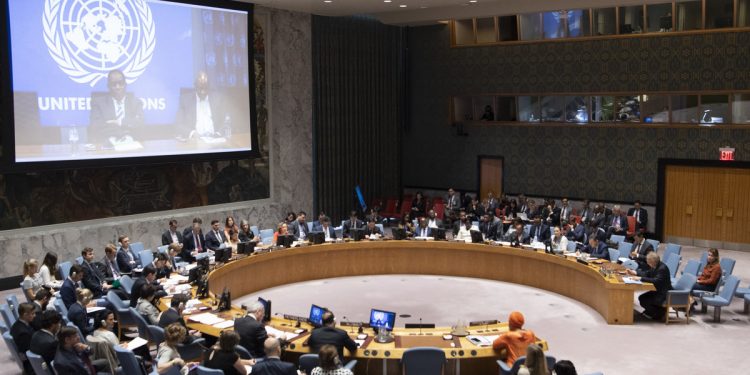Briefing by James Swan, Special Representative of the Secretary-General for Somalia and Head of the United Nations Assistance Mission in Somalia, on the situation in Somalia. The Special Representative of the Secretary-General for Somalia, James Swan, today (17 Nov) told the Security Council that ongoing delays in the electoral process in Somalia, “continue to stall progress in other critical areas and hamper the achievement of national priorities beyond the elections.” These priorities, he said, include “reforming the constitution and justice sector, and advancing the development agenda and financial reforms, including achieving the Heavily Indebted Poor Countries Initiative Completion Point in 2022.” Presenting the latest report of the Secretary-General on Somalia, Swan said, Swan, who is also the Head of the United Nations Assistance Mission in Somalia (UNSOM), said, “the humanitarian situation in Somalia remains dire, compounded by conflict, displacement and disease outbreaks,” adding that “Somalia is also on the frontline of recurrent climatic shocks, exacerbating the humanitarian emergency.” He noted that “7.7 million Somalis will require humanitarian assistance in 2022. Some 1.2 million children under the age of five are likely to be acutely malnourished in 2022 without immediate treatment” and “some 2.9 million people are estimated to be internally displaced throughout the country, one of the highest numbers of IDPs in the world.” The Special Representative of the Chairperson of the African Union Commission for Somalia and Head of the African Union Mission in Somalia (AMISOM), Francisco Caetano Jose Madeira, told the Council that terrorist group Al-Shabaab’s “effort is increasingly and deliberately directed at disrupting the electoral process with attacks on some election centres, indirect fire attacks against AMISOM fortified bases and increasing public executions of individuals working with Somali security forces and AMISOM personnel.” For his part, Somali Ambassador Abukar Dahir Osman said, “holding free and credible parliamentary and presidential elections have always been the stated policy of the Federal Government of Somalia, and in many respects, the delay in the election has been the result of a need to ensure all stakeholders are not only informed of the process but accept it in order to ensure the legitimacy of the administration post-election.” Somalia recently completed elections for all 54 seats in the Upper House of the Federal Parliament and 14 women will soon take office as Senators, representing 26 percent of the Upper House, short of the 30 percent target. Elections for the House of the People are underway, with 2 of the 275 seats having been completed, and elections for an additional eleven seats announced to begin this week.






Discussion about this post